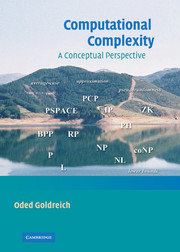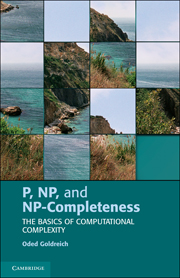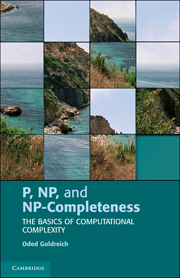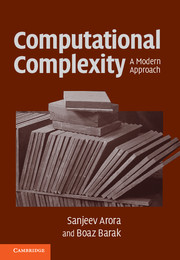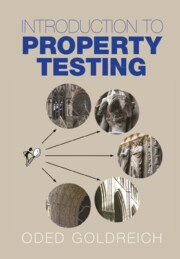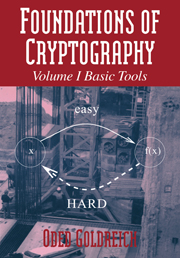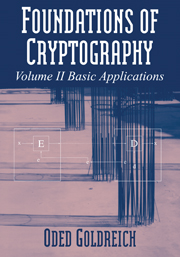Computational Complexity
This book offers a comprehensive perspective to modern topics in complexity theory, which is a central field of the theoretical foundations of computer science. It addresses the looming question of what can be achieved within a limited amount of time with or without other limited natural computational resources. Can be used as an introduction for advanced undergraduate and graduate students as either a textbook or for self-study, or to experts, since it provides expositions of the various sub-areas of complexity theory such as hardness amplification, pseudorandomness and probabilistic proof systems.
- Presents a conceptual perspective, meaning the text evolves around the underlying intuitive questions on the subject
- The focus is on motivation and ideas
- Organized around conceptual themes
Reviews & endorsements
"This interesting book... is refreshing to read his [Goldreichs'] opinions... The very strong focus on conceptual issues makes the book indispensible as a reference volume for research libraries."
M. Bona, University of Florida, CHOICE
"This book provides very well developed material that should interest advanced students either studying or doing new work on computational complexity. It would also be a valuable text for professionals challenged with solving "hard" computing problems of intending to exploit these types of problems when designing of new types computing systems."
Brian A. Lawler, Software Engineering Notes
"The book offers a conceptual perspective on several sub-areas of complexity theory and is intended to be used as a textbook for students and educators as well as for experts who seek an overview of of several sub-areas."
Gerhard Lischke, Mathematical Reviews
Product details
April 2008Hardback
9780521884730
632 pages
257 × 178 × 41 mm
1.25kg
Available
Table of Contents
- 1. Introduction and preliminaries
- 2. P, NP and NP-completeness
- 3. Variations on P and NP
- 4. More resources, more power?
- 5. Space complexity
- 6. Randomness and counting
- 7. The bright side of hardness
- 8. Pseudorandom generators
- 9. Probabilistic proof systems
- 10. Relaxing the requirements
- Epilogue
- Appendix A. Glossary of complexity classes
- Appendix B. On the quest for lower bounds
- Appendix C. On the foundations of modern cryptography
- Appendix D. Probabilistic preliminaries and advanced topics in randomization
- Appendix E. Explicit constructions
- Appendix F. Some omitted proofs
- Appendix G. Some computational problems.

